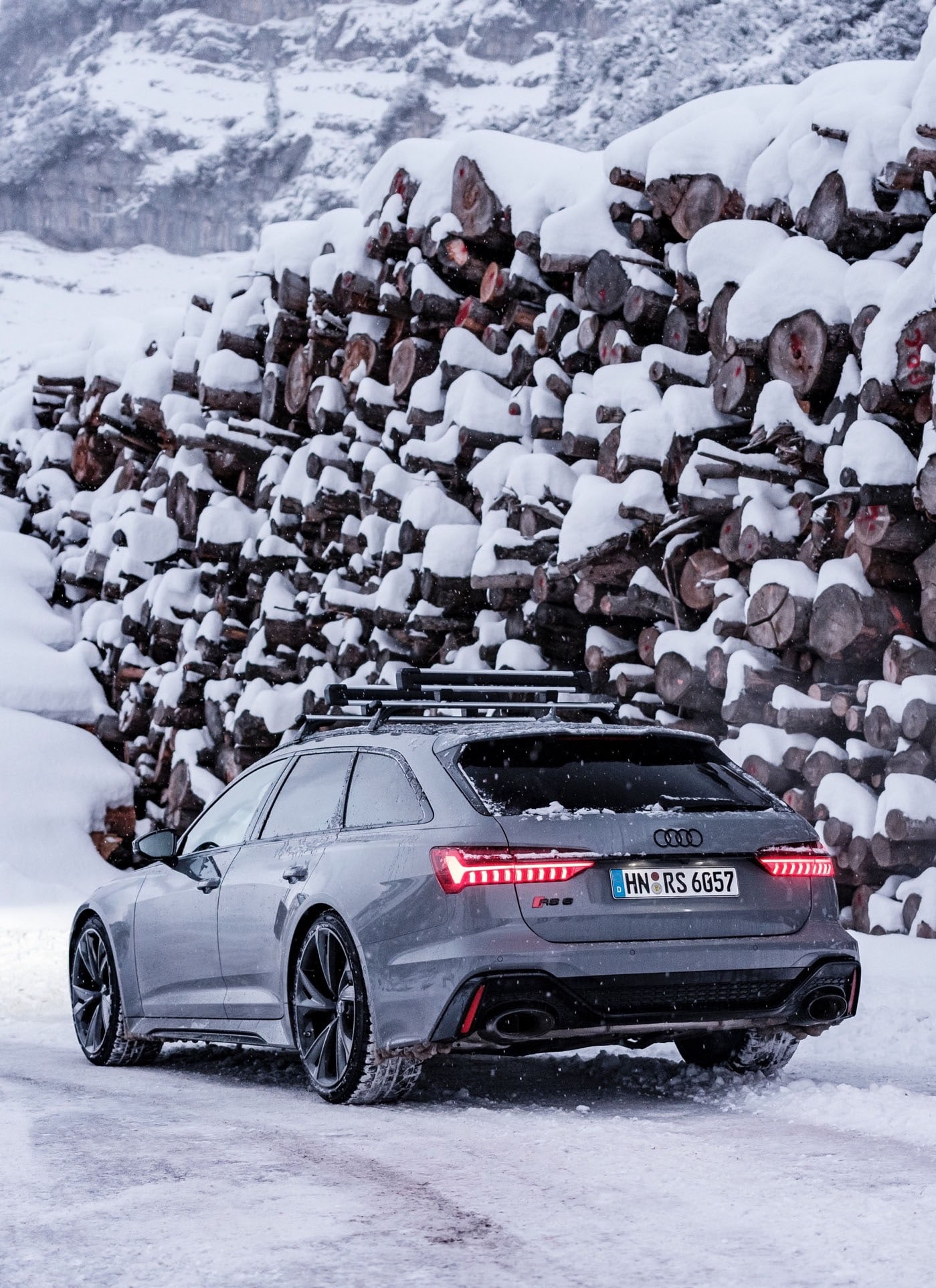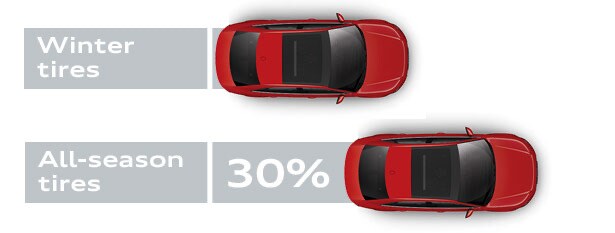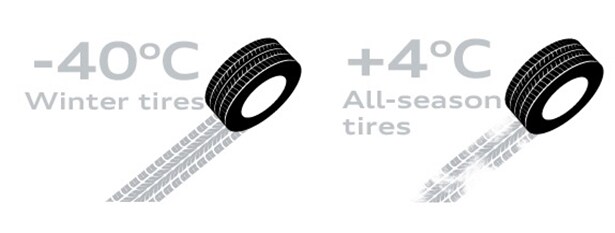The advantages only Audi Genuine Winter Wheels can offer.
When you chose your Audi, you chose a vehicle built with uncompromising quality and workmanship. Your winter wheels decision shouldn't be any different. See how Audi Genuine Winter Wheels are the right choice for your vehicle.
THE AUDI ADVANTAGE
Exemplary durability.
From excellent material and casting quality to four layers of paint and a special hardening process, Audi Genuine Winter Wheels are an investment that will prove to be even more rewarding down the road.
Striking design.
Audi's broad range of bold, eye-catching wheels gives you the freedom to select a design precisely in tune with your personal style.
Fits like a glove.
Audi Genuine Winter Wheels are developed in parallel with Audi vehicles, which means they work in total harmony with the models they are built for.
Rigorous quality testing.
Audi carries out numerous evaluation tests and inspections
to ensure all their Audi Genuine Winter Wheels meet the
most stringent quality standards. These tests include:
- Rolling test
- Radial impact test
- Ridge test
- Material characteristics test
- CASS test
- Climate condensation test
- X-ray and computer tomography tests


WHY WINTER TIRES?
The performance you love. The confidence you need.
Newer generations of winter tires are designed with a more flexible rubber compound that is less prone to stiffen in colder temperatures. Their tread is also designed to provide improved traction on wet, slushy, snowy, icy and dry cold surfaces. (Rubber Association of Canada 2007a)
A summary of tire types.
Here is a simple rating system for tire types commonly
used in Canada:
- Winter tires: Best in winter, fair in spring and fall (but tread wear increases), poor in summer
- Summer tires: Best for summer, fair in spring and fall, poor in winter
- All-season tires: Fair in spring, summer and fall, less satisfactory in colder conditions (7°C or colder) (Russell 2011)

Recognizing winter tires.
all winter tires that achieve performance-based standards.
This symbol is used and recognized globally.
WINTER TIRES VS. ALL-SEASON TIRES
What is the difference between winter tires and
all-season tires?
On dry pavement, with temperatures just below freezing, the stopping distance for vehicles equipped with all-season tires is 30% longer than for vehicles equipped with winter tires.

Winter tires also have better traction on a snowy surface at temperatures of -40°C than all-season tires have at +4°C. (Mahler 2008a)

Even on dry pavement, the overall performance of an all-season tire declines as the temperature becomes colder. (Fountain Tire 2011)